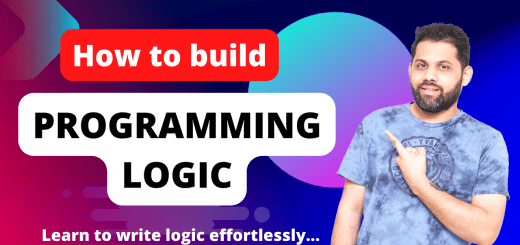How to prepare for a job interview as a fresher in the IT industry?
If you’re just starting out in your tech career, the thought of going through an interview can be intimidating. But don’t worry – with the right preparation, you can feel confident and secure in your abilities.
So, where do you begin? First, it’s important to understand what you can expect in an interview. These interviews typically consist of two types of questions: technical and behavioral.
Technical questions will test your knowledge of specific programming languages, algorithms, and software design principles. On the other hand, behavioral questions will assess your problem-solving skills and ability to work in a team.
To prepare for the technical portion of the interview, you must have a strong foundation in the programming languages and technologies you’ll be asked about. This means familiarizing yourself with the syntax, standard libraries, and common design patterns for languages like C, Java, Python, or C++.
It’s also helpful to understand basic computer science concepts like data structures, algorithms, and software design principles.
One way to strengthen your technical skills is to work on projects independently or with a team. This can be as simple as building a small application or completing online coding challenges. By putting your knowledge into practice, you’ll be better prepared to answer technical questions in the interview.
It’s also a good idea to review common interview questions for the technologies you’ll be working with. Plenty of online resources offer sample questions and answers, so take advantage of these to get a sense of what you might be asked. As you practice, try to understand the correct answer and the reasoning behind it. This will help you approach unfamiliar questions with a logical mindset rather than trying to memorize specific responses.
In addition to technical skills, it’s important to demonstrate your problem-solving abilities and team-oriented approach in the interview.
To prepare for behavioral questions, think about your past experiences and come up with specific examples of times when you faced a challenge and used your skills and resources to overcome it.
It’s also helpful to have a good understanding of your strengths and weaknesses and be able to discuss how you’ve worked to improve upon them.
Another critical aspect of the developer interview is your portfolio. This is a collection of your past work, including projects you’ve completed on your own or with a team in your college. Having a portfolio allows you to show off your technical skills and gives the interviewer a sense of your experience and capabilities.
It’s a good idea to choose a few projects that showcase your strengths and highlight any unique challenges you faced and how you overcame them.
In addition to your portfolio, be prepared to discuss your educational background and any relevant coursework or training you’ve completed. It’s also helpful to clearly understand your career goals and how this specific role fits into your long-term plans.
Finally, it’s essential to arrive at the interview prepared and confident. This means dressing appropriately, being on time, and bringing any necessary materials, such as your portfolio or resume copy.
It’s also a good idea to research the company and the specific role you’re applying for. This will help you tailor your responses to the organization’s specific needs and demonstrate your enthusiasm for the position.
In summary, preparing for an interview as a fresher requires a strong foundation in programming languages and technologies, the ability to demonstrate your problem-solving skills and team-oriented approach, and a portfolio of past work.
By taking the time to review common interview questions, practice your technical skills, and prepare for behavioral questions, you can feel confident and secure.





